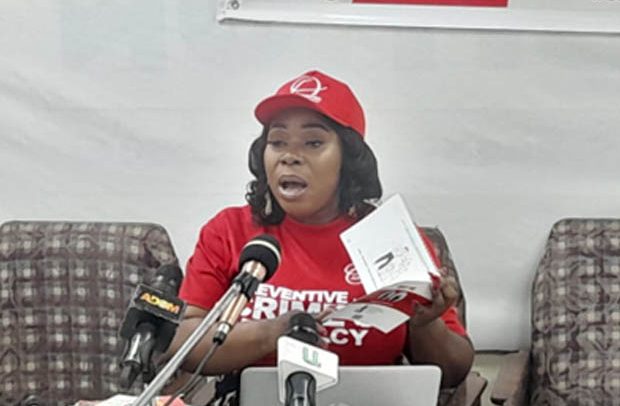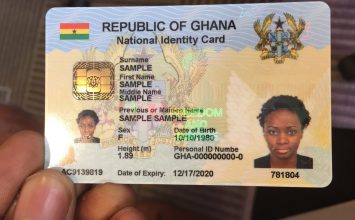
By Daniel Teye BOTCHWAY
Justice at the Crossroads
The recent suspension of Ghana’s Chief Justice in June 2025 over allegations of procurement breaches and abuse of office has reignited national debate over the state of corporate governance, judicial integrity, and human rights protections in Ghana.
As one of the last institutions symbolising the rule of law, the judiciary’s entanglement in ethical controversy casts a long shadow over institutional survival and credibility.
This episode is not isolated. It exposes a deeper contradiction at the heart of Ghana’s development agenda: the widening gap between human rights ideals and corporate or institutional governance practice.
As businesses face mounting global pressure to align with Environmental, Social and Governance (ESG) standards, and public institutions strive to remain credible, Ghana is at a pivotal moment—one where ethical leadership, not just legal compliance, will determine the country’s future prosperity.
This article explores how aligning governance frameworks with human rights standards is not only a moral obligation but a strategic necessity for survival—for governments, businesses, and civil society in Ghana and beyond.
Ethical Ecosystems: The Synergy Between Governance and Rights
Corporate governance defines the rules of engagement for leadership and accountability in both public and private institutions. Human rights management ensures freedom, equity, dignity, and protection for all stakeholders affected by institutional operations.
Their convergence is crucial in:
- Worker protection and decent pay
- Anti-discrimination and diversity policies
- Transparent grievance mechanisms
- Community consultation and environmental responsibility
These align with global instruments such as the UN Guiding Principles on Business and Human Rights (UNGPs) and Ghana’s obligations under SDG Goals 8, 10, and 16.
The Ghanaian Reality: What Happens When Ethics Fail
- In the Ghanaian context, the costs of ignoring these ethical intersections are immense:
- $3 billion lost to business corruption annually (World Bank, 2021)
- 3% of GDP lost to public sector corruption (Ghana Anti-Corruption Coalition, 2023)
- Collapse of 347 microfinance institutions between 2018 and 2020 due to insider abuse, poor board oversight, and depositor rights violations
Case in Point:
The 2020 financial sector clean-up resulted in over 1.5 million customers losing access to savings, eroded public confidence in financial governance, and cost the state GHS 21 billion in bailouts—resources that could have funded health, education, or job creation.
Global Precedents: Profits through Principles
International companies are proving that governance aligned with rights is profitable:
Unilever integrates rights into its supply chain, increasing consumer trust
Patagonia ties corporate decisions to environmental and human ethics
Firms with strong ESG ratings outperform peers by 3–5% annually (Harvard Business Review, 2020)
The Rana Plaza Tragedy (Bangladesh, 2013) where 1,134 garment workers died, forced Western fashion brands to reform governance and labour policies or risk consumer backlash. Ghana’s industries, especially textiles, cocoa, and gold, must heed similar warnings.
Financial Rewards of Ethical Governance
- Good governance is not just ethical—it’s fiscally smart:
- ESG-oriented firms face 25% fewer regulatory fines (Deloitte, 2021)
- Global ESG assets surpassed $39 trillion in 2022 (Morningstar)
- Companies with inclusive and rights-based policies see 21% higher employee engagement (Gallup, 2020)
- Ethical institutions enjoy lower cost of capital, as investors reward transparency
In Ghana, Stanbic Bank and Ecobank Ghana have improved governance by incorporating human rights policies, enhancing brand equity, and reducing non-performing loans.
Public Institutions: A Ticking Clock
The Chief Justice suspension, coming after earlier scandals involving judicial bribery (e.g., the 2015 Anas Aremeyaw exposé), reveals structural cracks in public institutional ethics. Though the Public Services Commission Code of Ethics promotes non-discrimination and accountability, enforcement remains weak.
According to the Commission on Human Rights and Administrative Justice (CHRAJ), over 3,400 human rights-related complaints were recorded in 2023—ranging from unlawful dismissals to police brutality—suggesting that rights-based governance remains aspirational, not operational.
The Way Forward: Governance for Human and Economic Survival
To realign Ghana’s governance ecosystem with sustainable development:
Policy Recommendations:
- Mandate ESG disclosures for all listed and state-owned enterprises
- Conduct independent human rights audits across ministries and MMDAs
- Strengthen grievance and whistleblower protections in both sectors
- Integrate human rights education into corporate leadership and board training
- Establish citizen-led oversight platforms for transparency and civic engagement
Choosing Between Decay and Endurance
Ghana stands at a moral and strategic fork in the road. The suspension of the Chief Justice, alongside persistent financial, social, and environmental injustices, signals a nation under institutional stress.
Without urgent reforms to embed human rights and ethical governance at every level—from the Supreme Court to the smallest district assembly—Ghana risks losing both investor trust and citizen confidence.
But it’s not too late.
Ethical ecosystems, when cultivated, bear fruit:
- Sustainable growth
- Institutional longevity
- Societal harmony
- As Kofi Annan rightly said:
“Good governance is perhaps the single most important factor in eradicating poverty and promoting development.”
Let us, as a nation, build institutions that protect, not exploit. That serve, not silence. That endure, because they are just.
The writer is a Human Rights, Corporate Governance and Cultural Consultant
The post Governance on trial: Why human rights and ethical leadership will make or break Ghana appeared first on The Business & Financial Times.
Read Full Story













Facebook
Twitter
Pinterest
Instagram
Google+
YouTube
LinkedIn
RSS